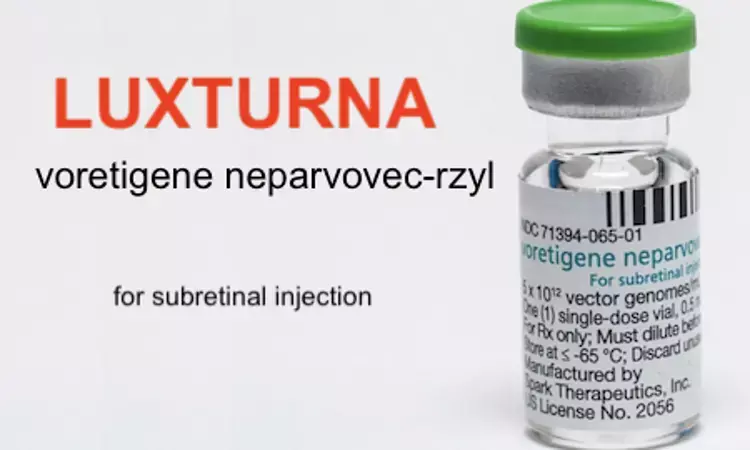- Home
- Medical news & Guidelines
- Anesthesiology
- Cardiology and CTVS
- Critical Care
- Dentistry
- Dermatology
- Diabetes and Endocrinology
- ENT
- Gastroenterology
- Medicine
- Nephrology
- Neurology
- Obstretics-Gynaecology
- Oncology
- Ophthalmology
- Orthopaedics
- Pediatrics-Neonatology
- Psychiatry
- Pulmonology
- Radiology
- Surgery
- Urology
- Laboratory Medicine
- Diet
- Nursing
- Paramedical
- Physiotherapy
- Health news
- Fact Check
- Bone Health Fact Check
- Brain Health Fact Check
- Cancer Related Fact Check
- Child Care Fact Check
- Dental and oral health fact check
- Diabetes and metabolic health fact check
- Diet and Nutrition Fact Check
- Eye and ENT Care Fact Check
- Fitness fact check
- Gut health fact check
- Heart health fact check
- Kidney health fact check
- Medical education fact check
- Men's health fact check
- Respiratory fact check
- Skin and hair care fact check
- Vaccine and Immunization fact check
- Women's health fact check
- AYUSH
- State News
- Andaman and Nicobar Islands
- Andhra Pradesh
- Arunachal Pradesh
- Assam
- Bihar
- Chandigarh
- Chattisgarh
- Dadra and Nagar Haveli
- Daman and Diu
- Delhi
- Goa
- Gujarat
- Haryana
- Himachal Pradesh
- Jammu & Kashmir
- Jharkhand
- Karnataka
- Kerala
- Ladakh
- Lakshadweep
- Madhya Pradesh
- Maharashtra
- Manipur
- Meghalaya
- Mizoram
- Nagaland
- Odisha
- Puducherry
- Punjab
- Rajasthan
- Sikkim
- Tamil Nadu
- Telangana
- Tripura
- Uttar Pradesh
- Uttrakhand
- West Bengal
- Medical Education
- Industry
Gene therapy demonstrates visual improvement in retinal dystrophy for at least 5 years: Study

Voretigene neparvovec-rzyl gene therapy demonstrates visual improvement in patients with retinal dystrophy and the beneficial effect lasts for at least five years, finds clinical trial.
The results of study suggest that visual improvements were maintained for at least five years in the original intervention group (bilateral subretinal Voretigene neparvovec-rzyl gene therapy), and four years in the delayed intervention group (Voretigene neparvovec-rzyl gene therapy after 1 year). The findings of the study were presented at the American Academy of Ophthalmology 2020, virtually held annual scientific meeting from November 13 to 15, 2020.
Voretigene neparvovec-rzyl is a gene therapy intended for use in individuals with confirmed biallelic RPE65 mutation-associated retinal dystrophy and viable retinal cells. Mutations in the RPE65 gene are associated with several clinical manifestations including nyctalopia, decreased visual field and decreased visual acuity. Voretigene neparvovec-rzyl uses a non-pathogenic recombinant adeno-associated virus vector serotype 2 (AAV2) to deliver cDNA encoding RPE65 protein to target cells in the retina.
In AAO 2020 researchers presented a long term safety information of the Phase 3 voretigene neparvovec-rzyl (VN) study in biallelic RPE65 mutation-associated inherited retinal disease. It was a a randomised control longitudinal study. Patients were randomly assigned to either original intervention (OI: bilateral subretinal VN at baseline; n = 20) or delayed intervention (DI: VN after 1 year; n = 9). They determined the multi-luminance mobility test (MLMT) at seven standard light levels as measured by a change score as a primary endpoint and full-field light sensitivity threshold (FST) as a secondary endpoint.
Key findings of the study were:
♦ By the end of 5 years from baseline researchers found, the MLMT mean (SD)bilateral light level change score for OI group (n=18) was 1.6 levels (1.1) and for DI group (n=8) it was 2.4 levels (1.5) compared to baseline.
♦ After assessing the 1-year outcomes, they found an improvement of one light level occurred in six patients, and no change in the remaining 20 (N = 26).
♦ They also found at Year 5 Mean change in white light FST in log10 (cd.s/m²) for OI patients (n = 17) it was −2.02 (1.45) log10 and for DI patients (n = 8) it was −2.58 (1.04) log10 at Year 4.
The authors concluded," Visual improvements are maintained for at least 5 years after VN administration in OI patients and at least 4 years in DI patients".
Medical Dialogues Bureau consists of a team of passionate medical/scientific writers, led by doctors and healthcare researchers. Our team efforts to bring you updated and timely news about the important happenings of the medical and healthcare sector. Our editorial team can be reached at editorial@medicaldialogues.in.
Dr Kamal Kant Kohli-MBBS, DTCD- a chest specialist with more than 30 years of practice and a flair for writing clinical articles, Dr Kamal Kant Kohli joined Medical Dialogues as a Chief Editor of Medical News. Besides writing articles, as an editor, he proofreads and verifies all the medical content published on Medical Dialogues including those coming from journals, studies,medical conferences,guidelines etc. Email: drkohli@medicaldialogues.in. Contact no. 011-43720751


